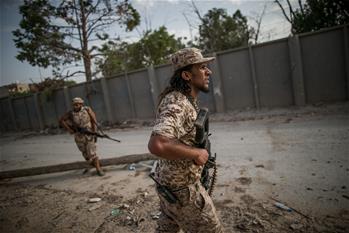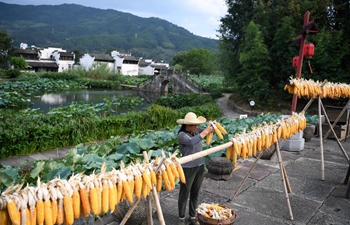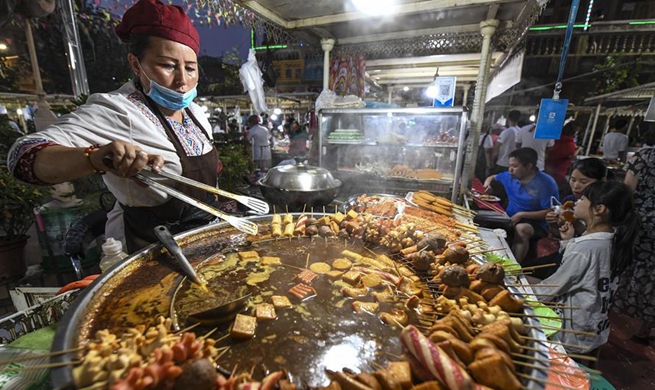GENEVA, Aug. 30 (Xinhua) -- The World Health Organization (WHO) called on Friday for "full force" of all partners to stop Ebola in the Democratic Republic of Congo (DRC), as the number of cases reaches 3,000 posing one of the largest and most complex humanitarian crises in the world.
"Our commitment to the people of the Democratic Republic of the Congo is that we will work alongside them to stop the Ebola outbreak," said WHO Director-General Dr. Tedros Adhanom Ghebreyesus.
"Our commitment also means strengthening the health systems to give them all the other things they need. Building strong systems is what will protect people, communities and the world."
With a population of 80 million, the DRC has more than four million displaced and is home to the world's second largest food crisis with 13 million people food insecure.
Since January 2019, outbreaks of cholera and measles resulted in more than 176,000 cases and over 3,400 deaths, while malaria, the leading cause of death in the DRC, kills more than 48,000 people every year, the WHO said.
"We are working in an incredibly complex environment, but thanks to support from donors and actions taken by the Ministry of Health, WHO and partners, we have saved thousands of lives," said Dr. Matshidiso Moeti, WHO regional director for Africa.
"We strive towards a much more united approach and call on NGOs and UN partners to continue to accelerate all activities. Everyone has a role to play and we each must be accountable for what we signed up to do, only then will we end this outbreak."
The current Ebola outbreak in the DRC was declared on Aug. 1 last year. As of Tuesday, there have been 2,997 cases, with 1,998 deaths and 893 survivors, according to the WHO. Most of the cases are in North Kivu province. In the past ten weeks, an average of 80 people per week are sickened by the virus.
More than 200,000 people have so far been vaccinated against Ebola in the DRC, along with health and front-line workers in Uganda, South Sudan, Rwanda and Burundi. Two therapeutic treatments being used in the country, as part of a clinical trial have shown to save nine of ten lives if used at the right time.

















